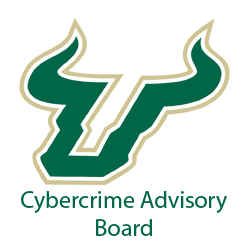
Great Cybersecurity Programming Languages
When it comes to IT work in cybersecurity, there are a number of different programming languages that you can use. They each have their own strengths and weaknesses, so it’s important to choose one that fits your needs.
In this article, we’ll take a look at some of the most common languages used in cybersecurity and why you should consider learning them if you intend on becoming part of this great, growing industry.
Why is Programming Important for Cybersecurity?
Cybersecurity is a growing industry with a lot of opportunities for those who can program. If you’re interested in getting into cybersecurity, learning to code will be an invaluable skill to have on your resume. This can help you land better jobs and make more money over time.
In addition, learning to program will make it easier for you to learn new languages and technologies. A lot of cybersecurity jobs require knowledge of multiple programming languages, so having some experience in one is definitely a plus.
The best time to start learning how to program is now. That way, when you begin looking for a job as a cybersecurity professional or consultant, you can apply your new programming knowledge in order to comprehend code and functions.
The Most Popular Cybersecurity Coding Languages
There are a number of coding languages that can be used to create secure applications, but the most popular ones are:
- C – (pronounced “see”) is a general-purpose programming language that was originally developed in 1972 by Dennis Ritchie. It remains one of the most widely used programming languages today. This also includes C++, an extension of C.
- JavaScript – One of the most popular programming languages in use today, JavaScript is a client-side scripting language that is used to create interactive websites and applications. It’s often used for frontend development, but it can also be found embedded within HTML pages or other server-side technologies.
- Python – A general-purpose programming language that was developed by Guido van Rossum in 1991. It’s often used in web development, but it can also be found in applications that need to process text or other types of data.
- Ruby – A dynamic, object-oriented programming language that was created by Yukihiro Matsumoto in 1995. It’s one of the most popular in today’s coding world, and was written in C, which leads to it becoming an easy transition for anyone already specializing in it.
- PHP – A server-side scripting language that was created in 1994 by Rasmus Lerdorf, who was also its principal developer until 2004. It’s one of the most widely used programming languages on the web today, and it’s often used to create dynamic websites or applications.
Conclusion for Cybersecurity Programming Languages
While these five are extremely popular in the cybersecurity world, there are hundreds of other languages that can be useful in the field of cybersecurity. If you’re interested in learning more about these languages and others, check out the Computer Science and Engineering department at your local college or university.
They’ll have a wealth of information on what’s trending today, and which languages are most likely to get you a job after graduation! Otherwise, for more great information like this, check our site at Arruda Group for all of your cybersecurity needs.




